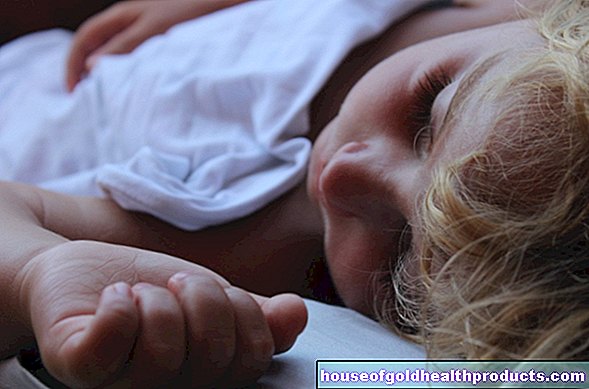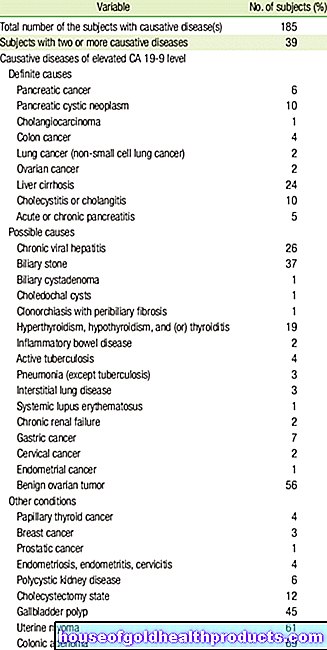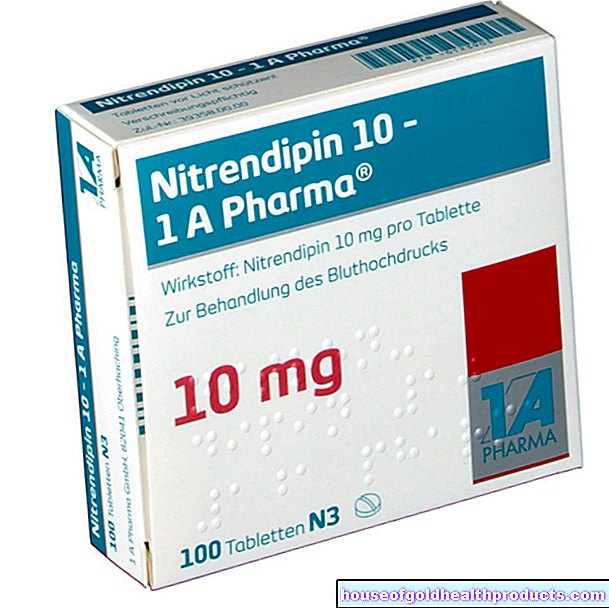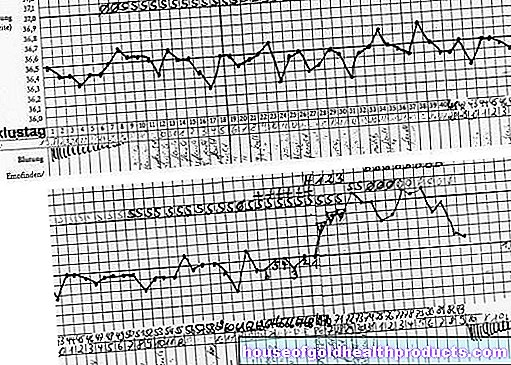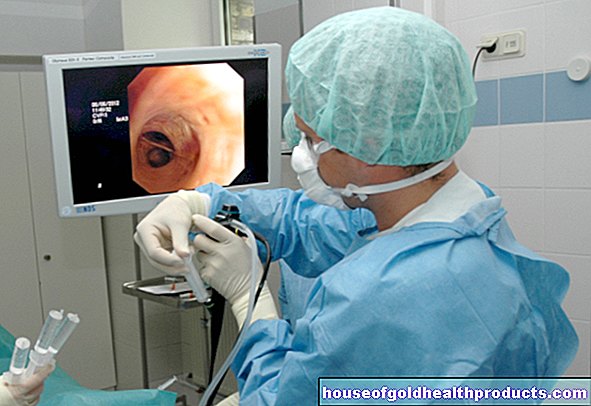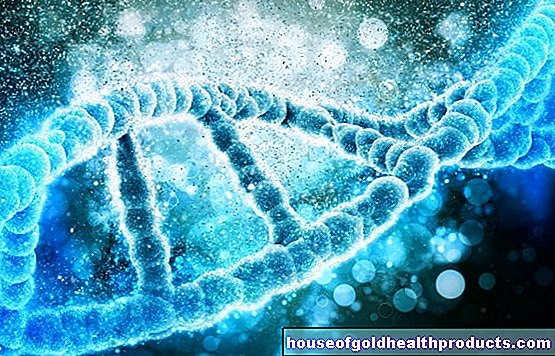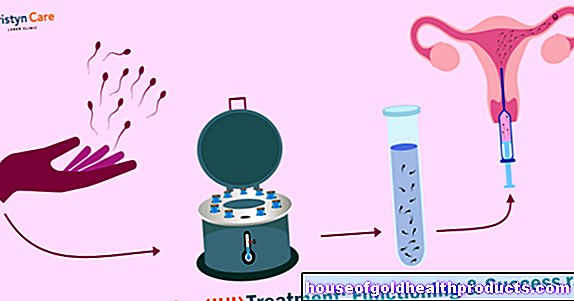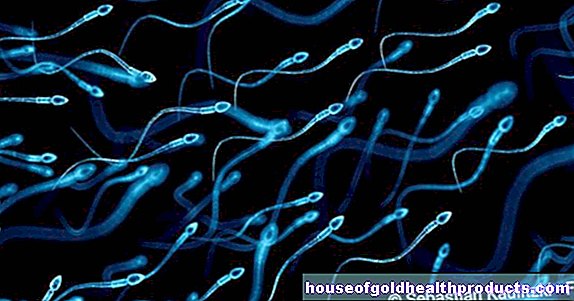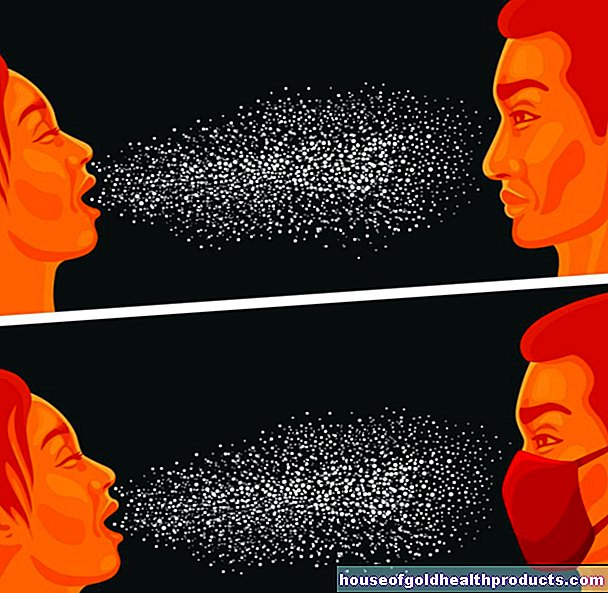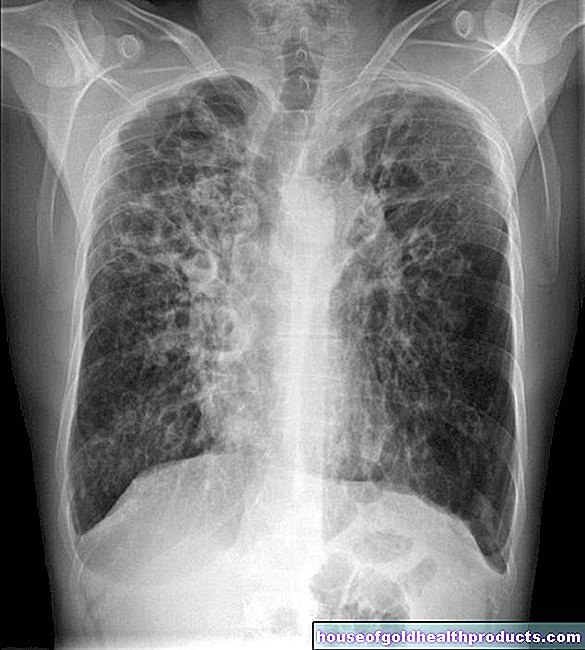Postpartum Depression: Early Evidence in the Blood
All content is checked by medical journalists.MunichA birth does not always trigger feelings of happiness - some mothers slip into postpartum depression. Researchers have now found molecules in the blood of pregnant women that reveal more about the risk.
Many mothers are familiar with the so-called baby blues. Around 70 percent of women initially feel sad and irritable after giving birth. The reason for this is probably the turbulence that the end of pregnancy triggers in the hormonal balance. For most, symptoms will go away after a few days. About 13 percent, on the other hand, develop postpartum depression, also known as postpartum depression, which is a considerable burden for both mother and child.
Blood tests during pregnancy
Scientists from the Max Planck Institute for Psychiatry in Munich have now searched the blood of pregnant women for biological markers for the phenomenon. Working with researchers from the Emory School of Medicine in Atlanta, they studied 45 women in the first and last trimester of pregnancy. They had previously been classified as at risk of postpartum depression based on their medical and social history.
On the one hand, the researchers used blood samples to determine certain hormone levels in the expectant mothers, and on the other hand, they examined the activities of their genes for peculiarities. They were able to determine this on the basis of so-called RNA molecules in the blood, which play a decisive role in reading the genes.
Deviating gene activity
After birth, 17 of the participants developed postpartum depression, 28 remained symptom-free. A comparison with the blood analyzes showed that around 100 genes were read differently in the sick women than in those who remained healthy.
"Surprisingly, around 34 percent of the more than 100 identified genes are related to processes that are regulated by the female sex hormone estrogen," explains first author Divya Mehta. The estrogen level in the blood of all test subjects was similarly high, "but women who later developed postpartum depression seem to respond more strongly to estrogen-mediated signals."
High accuracy
With the help of the biomarkers, the researchers were able to predict with an accuracy of 80 percent whether a woman would develop postpartum depression or not. This result was confirmed in a follow-up study with 24 other women.
We already know from previous studies that estrogens have a considerable influence on the mood. It is thought to affect the amount of the happiness hormone serotonin in the brain. In women who are particularly sensitive, the falling estrogen level after childbirth could result in a serotonin deficiency in the brain.
Recognized early, banned early
The test opens up the possibility of assessing the risk of postpartum depression before the birth. In that case, women at risk could be offered professional help in good time, the researchers write.
Often unrecognized
"Postpartum depression often goes untreated," warns Elisabeth Binder, Director of the Translational Research Department at the Max Planck Institute for Psychiatry in Munich. Inexperienced mothers attribute the symptoms to the general stress of childbirth or the new life situation.
In addition, many women affected do not seek professional help due to lack of money, social pressure or a lack of family support.
Serious consequences
Postpartum depression has serious consequences for both mother and child. It manifests itself in fears, aggression, hopelessness and substance abuse. Above all, the mothers have problems developing a relationship with the child. In severe cases, thoughts of suicide arise.
The children of affected mothers often have insomnia, are malnourished and slow to grow. In later life, they are more likely to develop respiratory and digestive disorders. The psyche also suffers: the children themselves are more often depressed or socially conspicuous.
Complex risk factors
Risk factors for postpartum depression include changes in hormone levels, stress, an unhappy marriage, and violence in the family. But innate genetic factors also seem to play a role. (cf)
Source: Divya Mehta et al: Early predictive biomarkers for postpartum depression point to a role for estrogen receptor signaling, Psychological Medicine,, Page 1 of 14. Cambridge University Press 2014, doi: 10.1017 / S0033291713003231
Tags: pregnancy foot care hospital